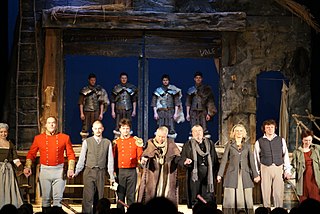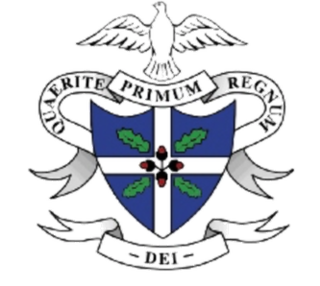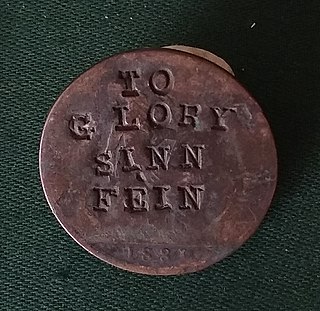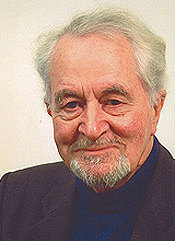Related Research Articles

Seamus Justin Heaney was an Irish poet, playwright and translator. He received the 1995 Nobel Prize in Literature. Among his best-known works is Death of a Naturalist (1966), his first major published volume. Heaney was and is still recognised as one of the principal contributors to poetry in Ireland during his lifetime. American poet Robert Lowell described him as "the most important Irish poet since Yeats", and many others, including the academic John Sutherland, have said that he was "the greatest poet of our age". Robert Pinsky has stated that "with his wonderful gift of eye and ear Heaney has the gift of the story-teller." Upon his death in 2013, The Independent described him as "probably the best-known poet in the world".

Brian Patrick Friel was an Irish dramatist, short story writer and founder of the Field Day Theatre Company. He had been considered one of the greatest living English-language dramatists. He has been likened to an "Irish Chekhov" and described as "the universally accented voice of Ireland". His plays have been compared favourably to those of contemporaries such as Samuel Beckett, Arthur Miller, Harold Pinter and Tennessee Williams.

Stephen Rea is an Irish film and stage actor.
Thomas Neilson Paulin is a Northern Irish poet and critic of film, music and literature. He lives in England, where he was the G. M. Young Lecturer in English Literature at Hertford College, Oxford.

Irish literature is literature written in the Irish, Latin, English and Scots languages on the island of Ireland. The earliest recorded Irish writing dates from back in the 7th century and was produced by monks writing in both Latin and Early Irish, including religious texts, poetry and mythological tales. There is a large surviving body of Irish mythological writing, including tales such as The Táin and Mad King Sweeny.

Translations is a three-act play by Irish playwright Brian Friel, written in 1980. It is set in Baile Beag (Ballybeg), a County Donegal village in 19th century Ireland. Friel has said that Translations is "a play about language and only about language", but it deals with a wide range of issues, stretching from language and communication to Irish history and cultural imperialism. Friel said that his play "should have been written in Irish" but, despite this fact, he carefully crafted the verbal action in English, bringing the political questions of the play into focus. Baile Beag is a fictional village, created by Friel as a setting for several of his plays, although there are many real places called Ballybeg throughout Ireland.
Events from the year 1980 in Ireland.

The culture of Northern Ireland relates to the traditions of Northern Ireland. Elements of the Culture of Ulster and the Culture of the United Kingdom are to be found.

Kathleen Ni Houlihan is a mythical symbol and emblem of Irish nationalism found in literature and art, sometimes representing Ireland as a personified woman. The figure of Kathleen Ni Houlihan has also been invoked in nationalist Irish politics. Kathleen Ni Houlihan is sometimes spelled as Cathleen Ni Houlihan, and the figure is also sometimes referred to as the Sean-Bhean Bhocht, the Poor Old Woman, and similar appellations. Kathleen Ni Houlihan is generally depicted as an old woman who needs the help of young Irish men willing to fight and die to free Ireland from colonial rule, usually resulting in the young men becoming martyrs for this cause, the colonial power being the United Kingdom. After the Anglo-Irish War, Kathleen Ni Houlihan became associated with the Irish Republican Army in Northern Ireland, especially during the Troubles.

St Columb's College is a Roman Catholic boys' grammar school in Derry, Northern Ireland. Since 2008, it has been a specialist school in mathematics. It is named after Saint Columba, the missionary monk from County Donegal who founded a monastery in the area. The college was originally built to educate young men into the priesthood, but now educates boys in a variety of disciplines.
Seamus Francis Deane was an Irish poet, novelist, critic, and intellectual historian. He was noted for his debut novel, Reading in the Dark, which won several literary awards and was nominated for the Booker Prize in 1996.

Sinn Féin and Sinn Féin Amháin are Irish-language phrases used as a political slogan by Irish nationalists in the late nineteenth and early twentieth century. While advocating Irish national self-reliance, its precise political meaning was undefined, variously interpreted as the aim of a separate Irish republic or that of a dual monarchy. Its earliest use was to describe individual political radicals unconnected with any party and espousing a more "advanced nationalism" than the Irish Home Rule movement represented by the Irish Parliamentary Party (IPP). In the 1890s "Sinn Féin, Sinn Féin amháin" was the slogan of the Gaelic League, which advocated the revival of the Irish language.

Reading in the Dark is a novel written by Seamus Deane in 1996. The novel is set in Derry, Northern Ireland and extends from February 1945 through July 1971. The book won the 1996 Guardian Fiction Prize and the 1996 South Bank Show Annual Award for Literature, is a New York Times Notable Book, won the Irish Times International Fiction Prize and the Irish Literature Prize in 1997, besides being shortlisted for the Booker Prize in 1996. It has been translated into 20 languages.

Desmond Carolan Fennell was an Irish writer, essayist, cultural philosopher, and linguist. Throughout his career, Fennell repeatedly departed from prevailing norms. In the 1950s and early 1960s, with his extensive foreign travel and reporting and his travel book, Mainly in Wonder, he departed from the norm of Irish Catholic writing at the time. From the late 1960s into the 1970s, in developing new approaches to the partition of Ireland and the Irish language revival, he deviated from political and linguistic Irish nationalism, and with the philosophical scope of his Beyond Nationalism: The Struggle against Provinciality in the Modern World, from contemporary Irish culture generally.

The Cure at Troy: A Version of Sophocles' Philoctetes is a verse adaptation by Seamus Heaney of Sophocles' play Philoctetes. It was first published in 1991. The story comes from one of the myths relating to the Trojan War. It is dedicated in memory of poet and translator Robert Fitzgerald.
Edna Longley is an Irish literary critic and cultural commentator specialising in modern Irish and British poetry.

That part of the United Kingdom called Northern Ireland was created in 1922, with the partition of the island of Ireland. The majority of the population of Northern Ireland wanted to remain within the United Kingdom. Most of these were the Protestant descendants of settlers from Great Britain.
Kevin Kiely is a poet, critic, author and playwright whose writings and public statements have met with controversy and also with support.
John Wilson Foster is an Irish literary critic and cultural historian.

Beowulf: A New Verse Translation is a verse translation of the Old English epic poem Beowulf into modern English by the Irish poet and playwright Seamus Heaney. It was published in 1999 by Farrar, Straus, and Giroux and Faber and Faber, and won that year's Whitbread Book of the Year Award.
References
- ↑ "Field Day, Irish books, theatre and debate". Field Day. Retrieved 31 July 2021.
- ↑ Day, Field (10 November 2020). "Welcome to the Field Day Podcast". Field Day. Retrieved 31 July 2021.
- ↑ "Welcome to the Field Day Podcast". 10 November 2020.